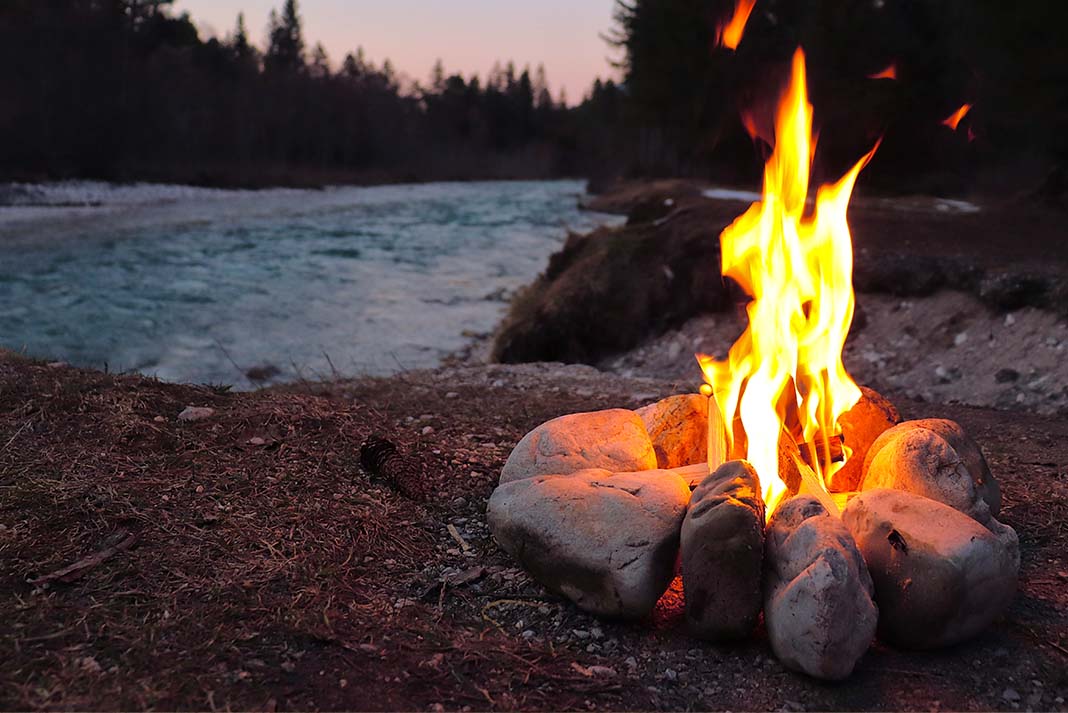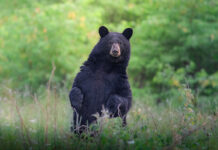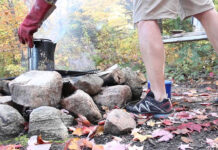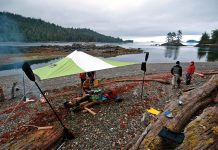Camping is synonymous with campfires. There is some atavistic aspect of staring into the dancing flames over a bed of embers that is primitively satisfying and deeply comforting.
Campfires are not, however, without their drawbacks. The scarring of land, harvesting of firewood and the residual trash not consumed by flames are apparent at nearly every campsite that sees even moderate use. So how can campfire impact be reduced?
Here are some tips for building a low-impact fire that will still allow you to partake in this timeless tradition.
Consider your foundation
Where is the best place to build a fire? Use an existing pit where available. Make sure the fire is contained in a fire ring, or—even better—carry and use a metal fire pan or fire box to prevent ground scarring. You can also make a fire on a mound of sand or earth, and then scatter the mound and cooled grey ash so that you cannot tell a fire was ever burned there.
Build a small fire using small pieces of wood
Ideally, you should be able to break the wood with your bare hands. For most people, this means using sticks that are wrist-size or smaller. Small pieces of wood burn to grey ash more readily, leaving behind fewer unsightly pieces of charcoal and half-burned wood.

Collect wood from the ground, not from standing trees
At most campsites there is an abundance of fallen small wood overlooked by campers who scavenge for larger pieces. It is easy to gather and will keep even the most obsessive fire-pokers busy feeding it to the flames.
Keep trash out of your fire
Metal will not be consumed, lumps of uneaten dinner will not burn to ash and no one wants to sit around a campfire smelling the fumes from melting plastic.
Don’t leave your fire unattended
If you are not going to be close enough—or awake enough—to control it, put it out.
Don’t have a fire
At least, not every night. Make having a campfire a special treat.
Enjoy your fire, but don’t take it for granted. Keep it clean and small and don’t use all the wood. The next campers will thank you.








